A not-so-quiet place: Why is no one using headphones in public anymore?
People are increasingly comfortable with both speakerphone and watching videos (very) out loud

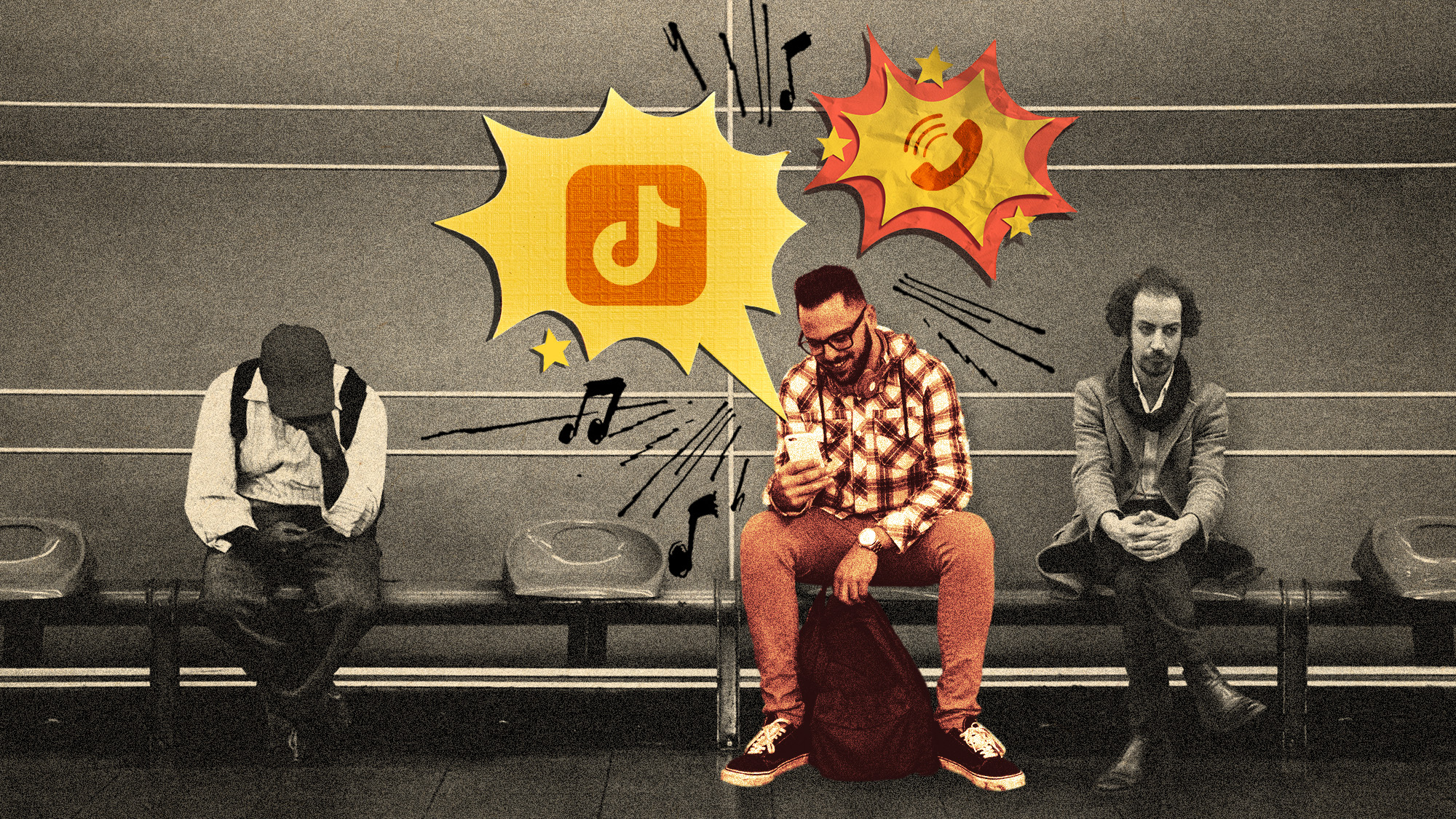
A free daily email with the biggest news stories of the day – and the best features from TheWeek.com
You are now subscribed
Your newsletter sign-up was successful
Famed nineteenth century philosopher Arthur Schopenhauer had some strong opinions on noise. He wrote at length about his personal distaste for hammering, barking dogs and screaming children and claimed there was a link between sensitivity to loud sounds and heightened intelligence. "Noise is the most impertinent of all forms of interruption. It is not only an interruption but also a disruption of thought," he wrote. "Of course, where there is nothing to interrupt, noise will not be so particularly painful."
Schopenhauer would not last ten minutes in the digital age. Noise pollution is thicker than ever, thanks in large part to cell phones. Anywhere we go — the subway, the coffee shop, the airport — people are using their devices, quite often without headphones. You will overhear calls made on speakerphone and TikToks playing back to back. The practice, dubbed "blasterbating" by Kendra Stanton Lee at Newsweek, is defined as "the loud consumption of digital content that is only intended for oneself, but to which all in proximity are subjected." Somehow, even though a "general decorum of respecting shared spaces predates cellular phones," said Lee, technology etiquette appears to be regressing.
What are the practical reasons people are not using headphones?
The trouble begins with the addicting nature of the phones themselves. A 2023 study found that 57% of Americans admitted to being addicted to their phones. With the advent of "doomscrolling" and TikTok's "addictive algorithm," many people are glued to technology for large parts of their day, even while in public places.
The Week
Escape your echo chamber. Get the facts behind the news, plus analysis from multiple perspectives.

Sign up for The Week's Free Newsletters
From our morning news briefing to a weekly Good News Newsletter, get the best of The Week delivered directly to your inbox.
From our morning news briefing to a weekly Good News Newsletter, get the best of The Week delivered directly to your inbox.
Then smartphone design — and over half of the world now has a smartphone — compounds the issue. Apple removed the iPhone's headphone jack in 2016 to make room for other inputs, and Android started removing jacks, too. This means users have to purchase wireless headphones, like AirPods, in order to listen to their devices privately. But wireless headphones are often more expensive and easier to lose than traditional wire headphones and connecting to Bluetooth takes more effort than plugging in a cord, especially for the less technologically savvy.
What are the psychological implications?
Many people are not happy about strangers forgoing headphones in public. On X, Ashley Clark called it an "outright epidemic of people guilelessly and guiltlessly listening to TV shows/music out loud." But the bother is perhaps not universal: "For some people, going sans headphones doesn't register as a problem," said The New York Times. "For others, it's an affront — in some cases, debilitatingly so."
Speaking up is always an option, and attempts can be made to embarrass or educate others by reminding them of headphones' existence. Jay Van Bavel, a professor of psychology at New York University, calls this a "Covid-era 'norm erosion' that can only change if there's sufficient norm enforcement," said the Times. But confronting a stranger can be intimidating, especially when you don't know whether someone will react in a violent or explosive manner. "It seems easy to ask," Van Bavel said, "but at the moment, you are violating a norm, and it's hard."
Some experts believe that people may be more disrespectful and unkind since the pandemic, said CBS News. "Not only did the pandemic worsen deep-seated issues such as mental health, homelessness, health care and political polarization, it has made people think differently about one another," said Michael Halpin, a sociology professor at Dalhousie University, to the outlet.
A free daily email with the biggest news stories of the day – and the best features from TheWeek.com
A 2022 study in the journal PLOS One found evidence of "population-wide personality shifts" in the wake of Covid, said NPR. In the pandemic's later period, researchers noted "significant declines in the traits that help us navigate social situations, trust others, think creatively and act responsibly," especially among young adults. But researchers added those changes could also be attributed to economic stress, among other things, and are not necessarily permanent.
When it comes to the subject of eschewing headphones, "maybe we're not more rude than ever," M. Zachary Rosenthal, the director of the Center for Misophonia and Emotion Regulation at Duke University, said to the Times. "We just have new ways of being rude."
Anya Jaremko-Greenwold has worked as a story editor at The Week since 2024. She previously worked at FLOOD Magazine, Woman's World, First for Women, DGO Magazine and BOMB Magazine. Anya's culture writing has appeared in The Atlantic, Jezebel, Vice and the Los Angeles Review of Books, among others.
-
 Political cartoons for February 15
Political cartoons for February 15Cartoons Sunday's political cartoons include political ventriloquism, Europe in the middle, and more
-
 The broken water companies failing England and Wales
The broken water companies failing England and WalesExplainer With rising bills, deteriorating river health and a lack of investment, regulators face an uphill battle to stabilise the industry
-
 A thrilling foodie city in northern Japan
A thrilling foodie city in northern JapanThe Week Recommends The food scene here is ‘unspoilt’ and ‘fun’
-
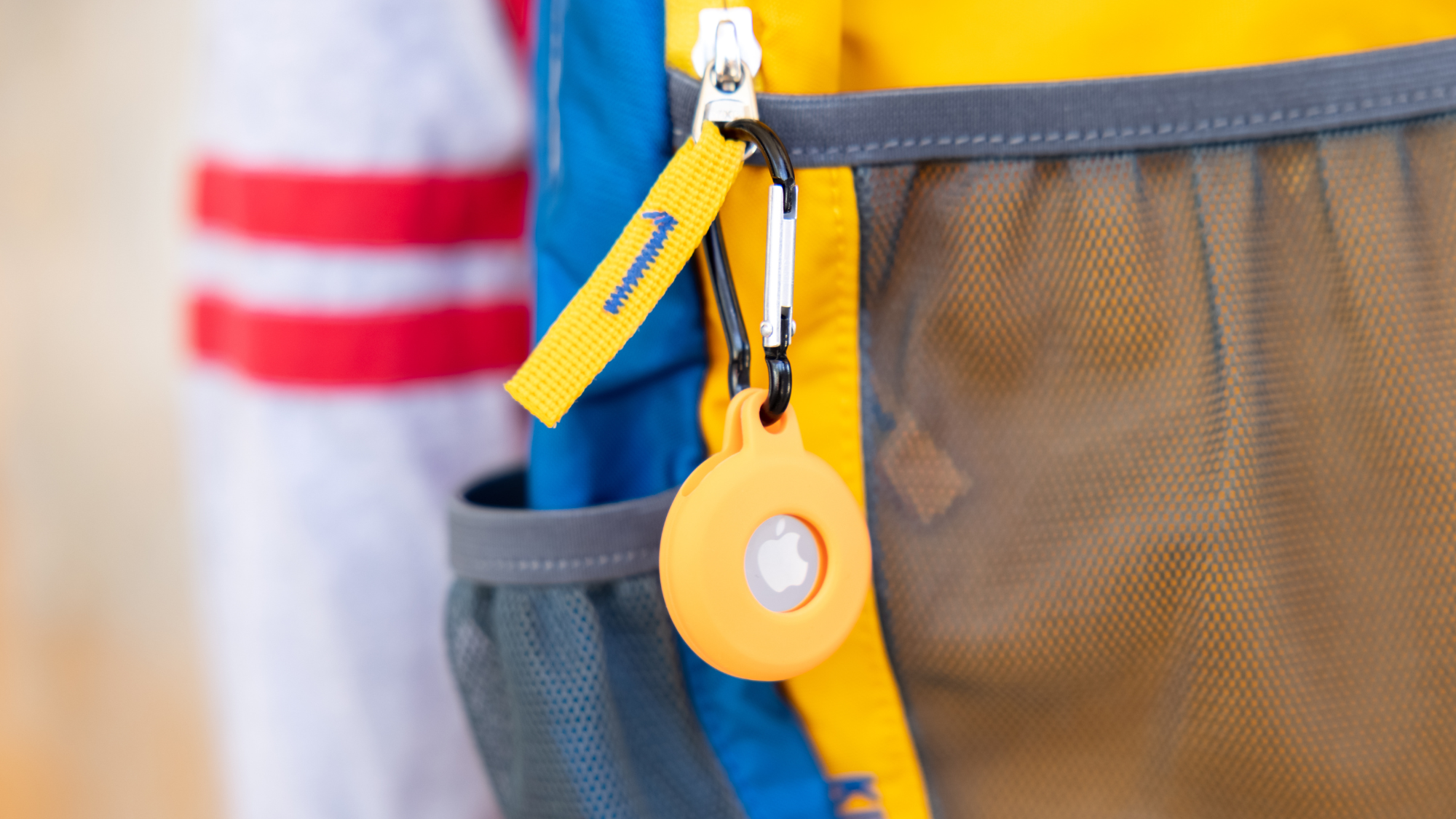 Should parents stop tracking their kids?
Should parents stop tracking their kids?Talking Point Experts warn the line between care and control is getting murkier – and could have consequences
-
 The best drama TV series of 2025
The best drama TV series of 2025the week recommends From the horrors of death to the hive-mind apocalypse, TV is far from out of great ideas
-
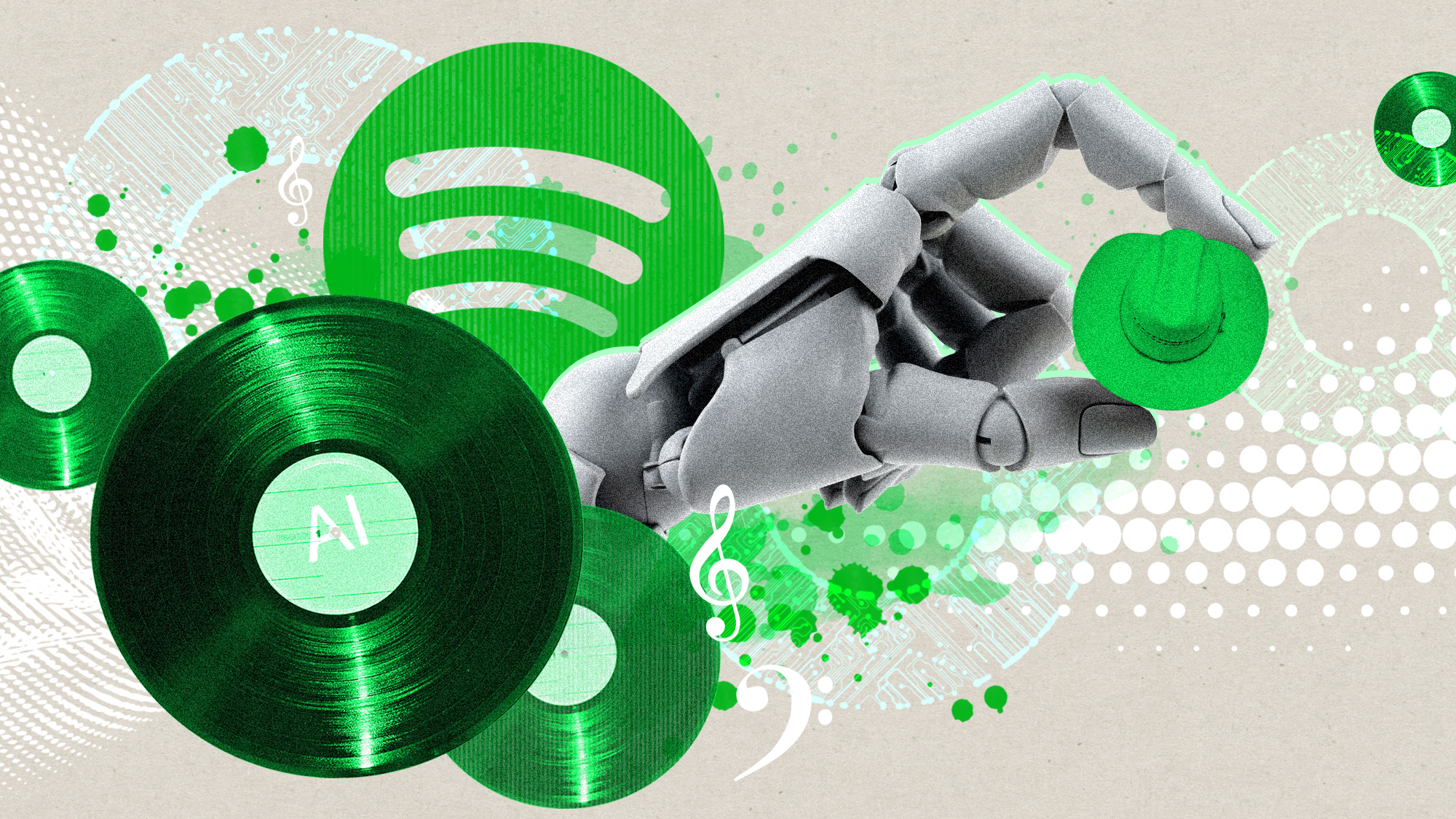 The most downloaded country song in the US is AI-generated
The most downloaded country song in the US is AI-generatedUnder the radar Both the song and artist appear to be entirely the creation of artificial intelligence
-
 Rosalía and the rise of nunmania
Rosalía and the rise of nunmaniaUnder The Radar It may just be a ‘seasonal spike’ but Spain is ‘enthralled’ with all things nun
-
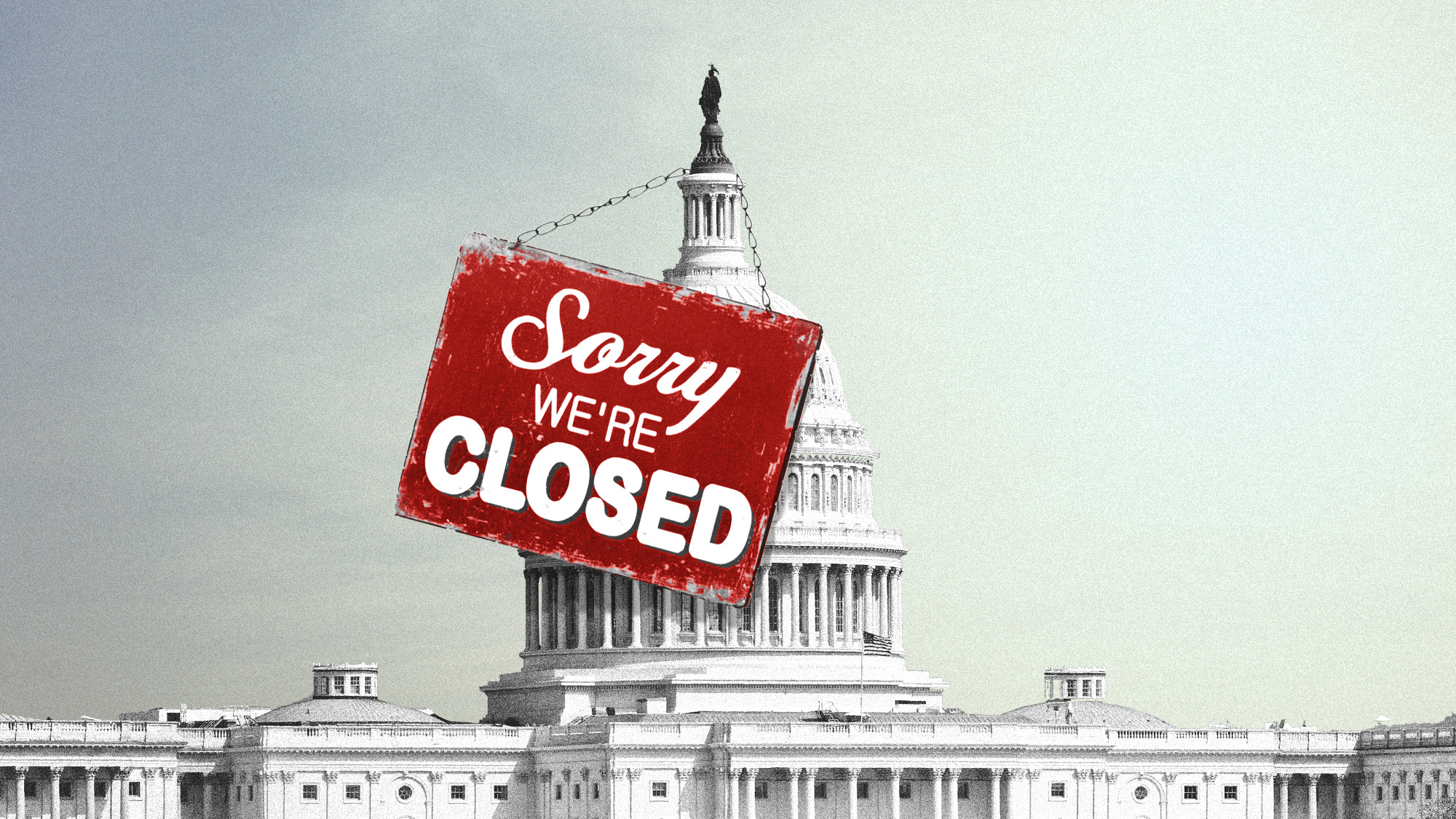 DC tourism has taken a hit
DC tourism has taken a hitUnder the Radar The government shutdown has reduced tourist attractions
-
 Book reviews: ‘We the People: A History of the U.S. Constitution’ and ‘Will There Ever Be Another You’
Book reviews: ‘We the People: A History of the U.S. Constitution’ and ‘Will There Ever Be Another You’Feature The many attempts to amend the U.S. Constitution and Patricia Lockwood’s struggle with long Covid
-
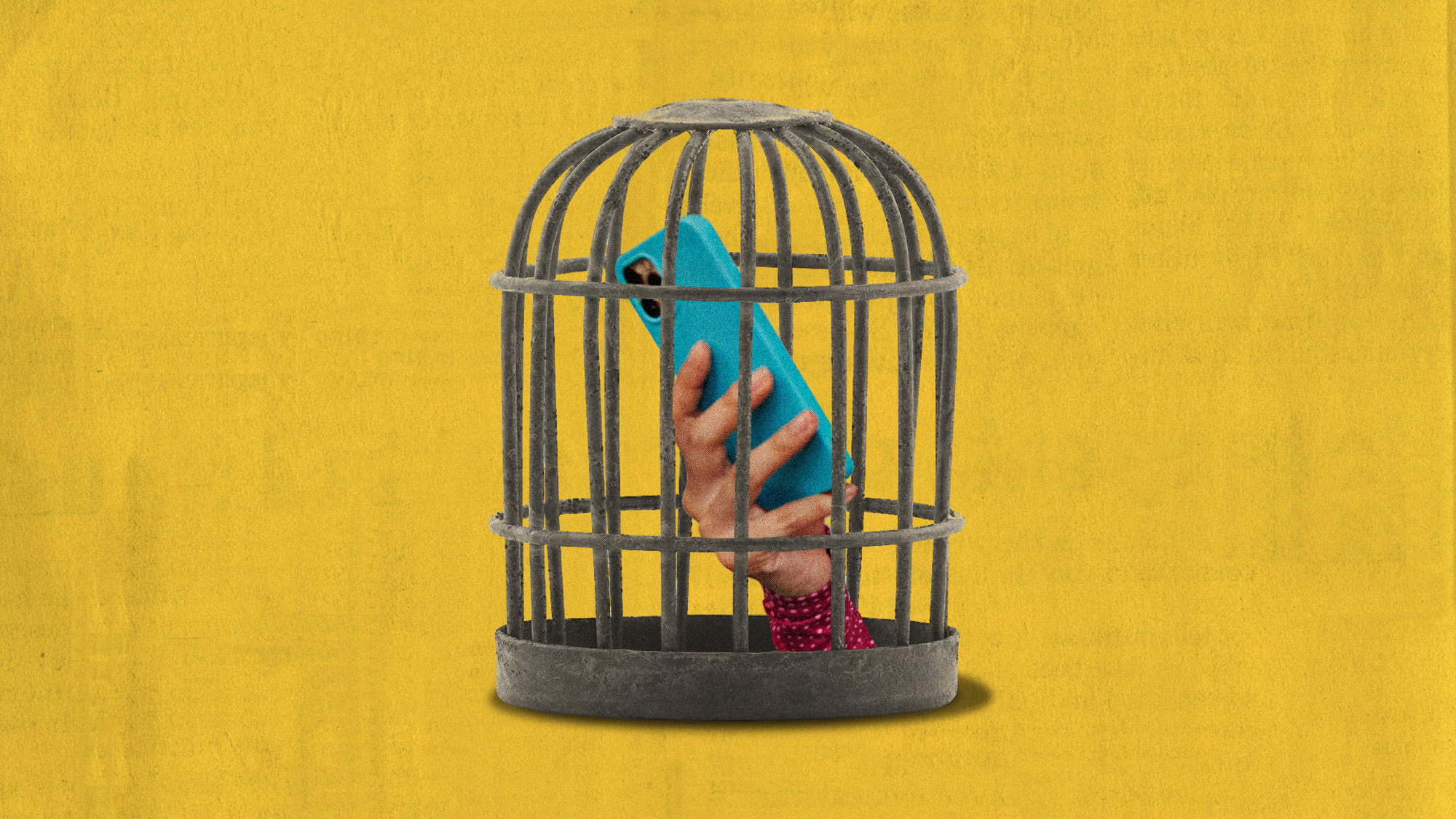 Back to the future: Kids embrace ‘old school’ devices
Back to the future: Kids embrace ‘old school’ devicesUnder the radar From MP3s to sewing machines
-
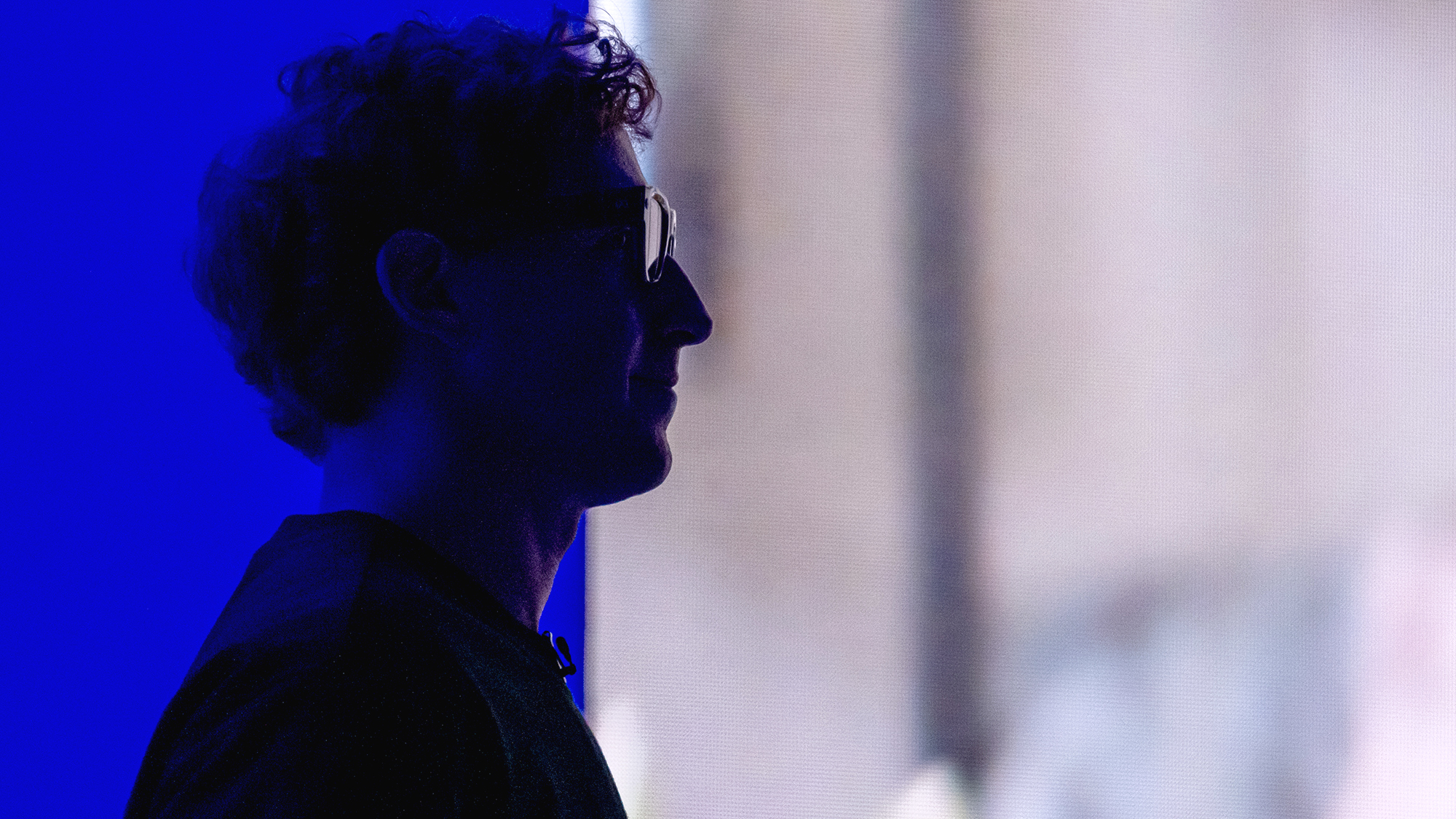 Smart glasses and unlocking ‘superintelligence’
Smart glasses and unlocking ‘superintelligence’The Explainer Meta unveiled a new model of AI smart glasses this week, with some features appearing ‘unfinished’ at a less-than-perfect launch
